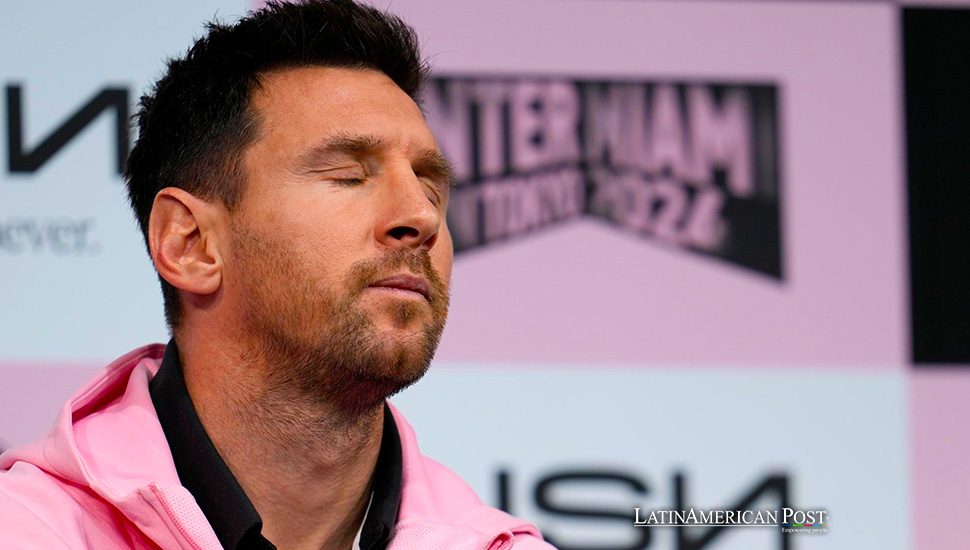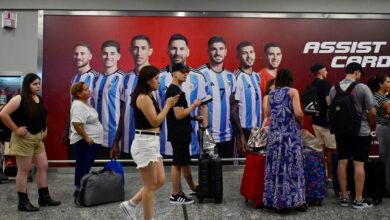Anger in China as Argentina’s Messi Plays in Japan After Missing Hong Kong Match

The decision of Argentine soccer superstar Lionel Messi to skip a friendly match in Hong Kong due to injury, only to play in Japan days later, has ignited a firestorm of criticism from Chinese fans and media, highlighting the complex dynamics of international sports engagements.
Messi’s Controversial Actions
In the high-stakes world of international soccer, the actions of a single player can have ramifications that ripple across continents, stirring emotions and sparking debates that transcend the sport itself. This was vividly illustrated recently when Lionel Messi, the Argentine football maestro known for his mesmerizing skills and unparalleled achievements on the field, found himself at the center of a controversy that has drawn sharp criticism from fans and media outlets in China.
The incident unfolded over a sequence of days that were supposed to celebrate the global appeal of soccer, with Messi’s team, Inter Miami, scheduled to play exhibition matches in both Hong Kong and Japan. The fan anticipation was palpable, with many eager to glimpse Messi in action, a testament to his status as a global sports icon. However, the narrative took an unexpected turn when Messi could not participate in the match in Hong Kong due to a reported adductor injury. This development disappointed many but seemed at the time to be an unfortunate but understandable part of sports.
The disappointment turned into disillusionment and anger when Messi, just days after missing the Hong Kong match, took to the field in Japan for a friendly game, playing around thirty minutes and engaging enthusiastically with fans and celebrities alike. This stark contrast in his participation and demeanor between the two events did not go unnoticed, especially among the Chinese fans and media eagerly anticipating his appearance in Hong Kong.
Expressing Betrayal and Scrutinizing Messi’s Behavior
The state-run Global Times was vocal in expressing the sentiment of betrayal felt by many, describing a mix of “disappointment and anger” among the fans. Messi’s behavior was scrutinized, with his “impassive” and “expressionless” attitude in Hong Kong juxtaposed against his friendly, engaging presence in Japan, raising questions about the priorities and obligations of international sports figures.
Messi’s attempt to address the situation through an apology on Weibo, a popular Chinese social media platform, underscored the complexities of modern athlete-fan interactions. He expressed regret for not being able to play in Hong Kong, emphasizing his desire always to participate in such matches, especially when they involve traveling great distances to meet fans. Yet, the apology seemed insufficient for some, as it did not entirely quell his Chinese supporters’ disappointment and perceived slight.
Sports Diplomacy and Commercial Imperatives
The controversy also spotlighted the broader implications for sports diplomacy and the expectations placed on global sports stars. David Beckham, a shareholder in Inter Miami, and Kevin Yeung, Hong Kong’s Secretary for Culture, Sports, and Tourism, were also drawn into the fray, highlighting the financial and promotional stakes in organizing such high-profile matches. The requirement for Messi to play at least 45 minutes, contingent on fitness and safety considerations, as part of the financing agreement speaks to the delicate balance between athlete welfare and the commercial imperatives of sports.
Also read: The 20 Greatest Latin American Boxers in History
The fallout from Messi’s absence in the Hong Kong match and his subsequent appearance in Japan is a telling reminder of the global reach of sports stars and the intense emotional investment of fans. It raises crucial questions about the responsibilities of athletes to their international fan base, fans’ expectations, and sports’ role in bridging cultural divides.
As the dust settles on this episode, the reactions from fans, media, and officials in China serve as a poignant illustration of the challenges and opportunities of the globalized nature of sports. Messi’s situation is not an isolated incident but part of a broader narrative about the impact of individual athletes on international relations and cultural exchange. It is a narrative that continues to evolve, reflecting the changing dynamics of a world where sports and society increasingly intersect.





